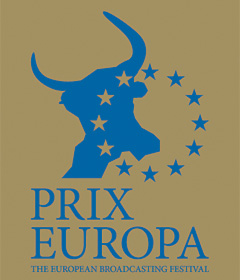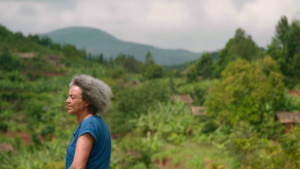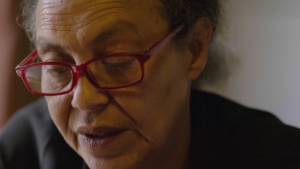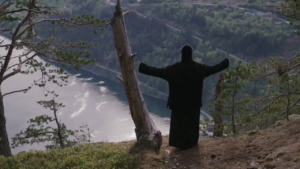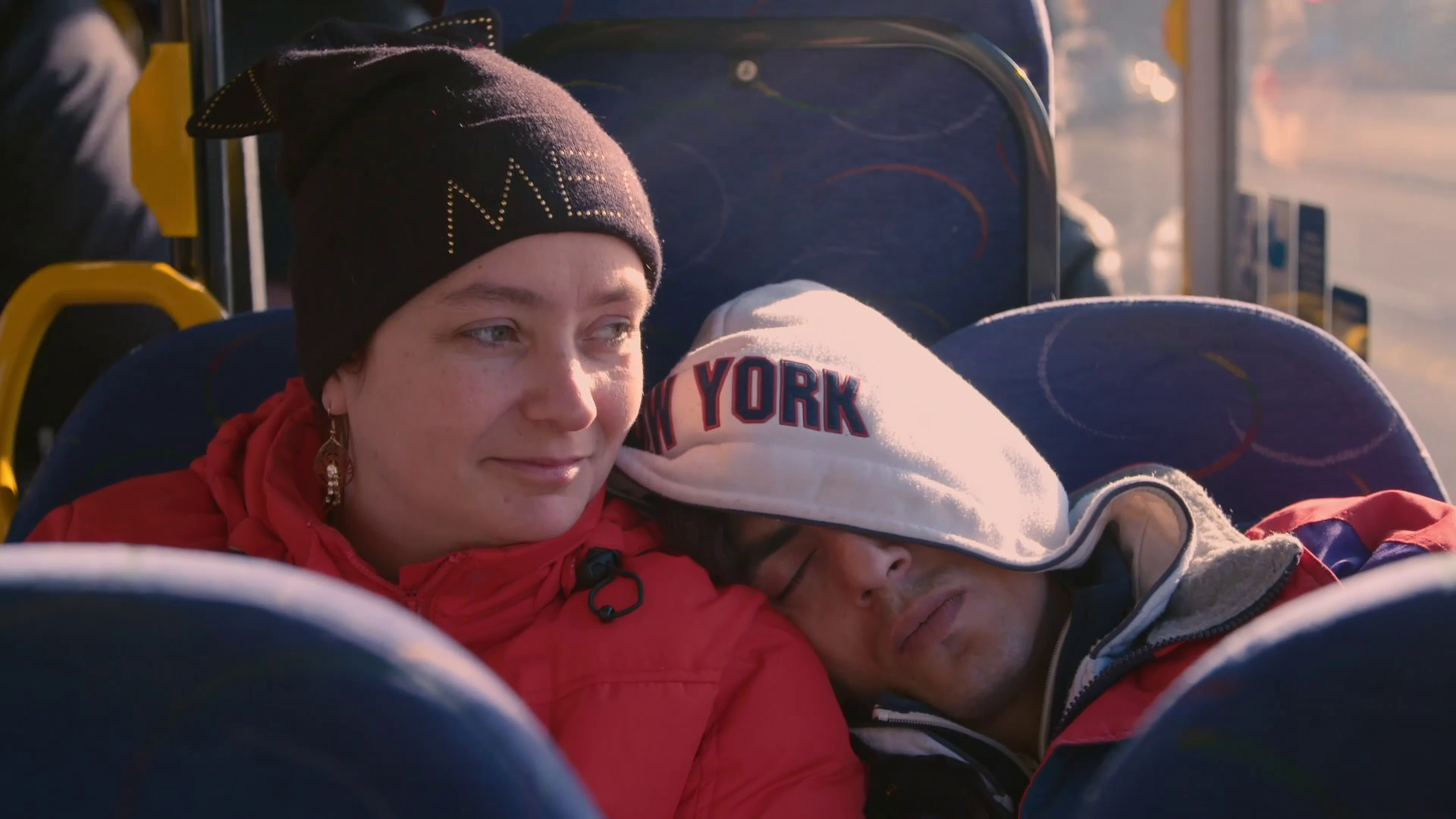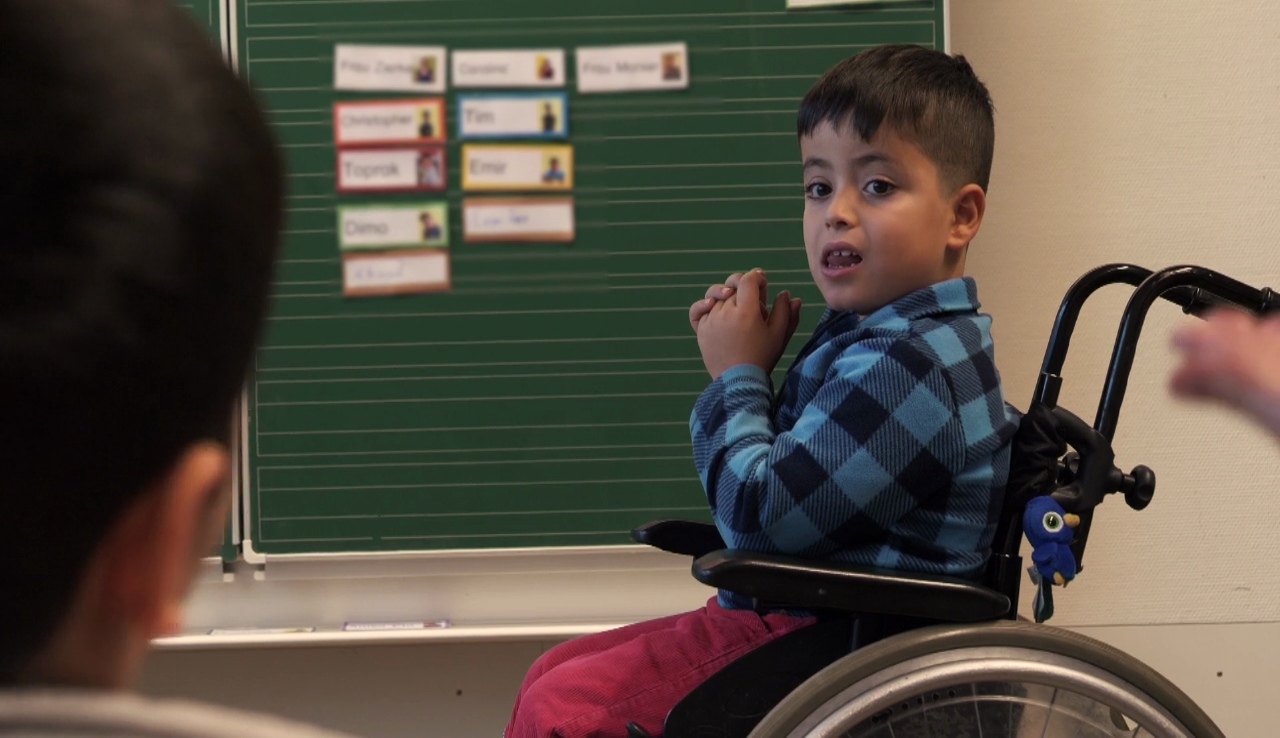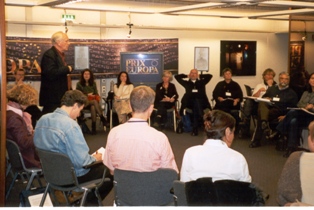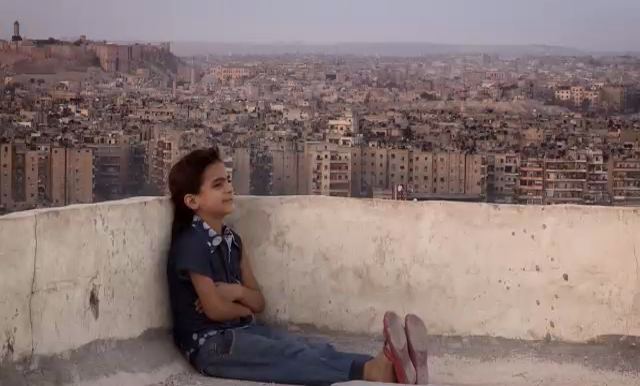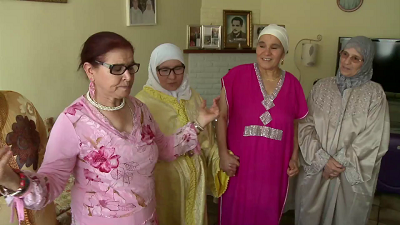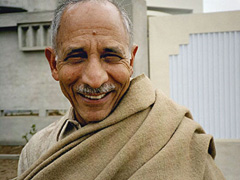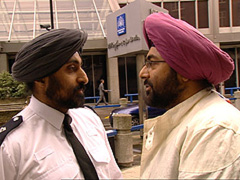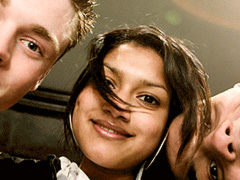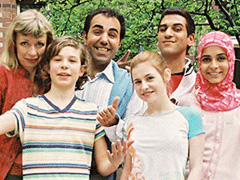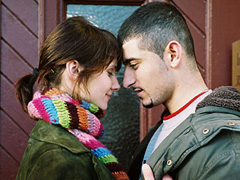The latest IRIS winner (of the year 2022) is the documentary "Belgium’s stolen children", submitted by VRT-Canvas, directed by Steven Crombez, produced by De Chinezen NV.
Winner TV Iris 2022: Belgium’s Stolen Children
Devestating cruelty of the past
Who am I, who are my father and mother and where do I come from? These are the essential questions in life. In an honest way, the makers of 'Belgium's Stolen Children' reconstruct a hidden and very painful history. Sixty years after the independence of Rwanda and Burundi, hundreds of children born to a white father and a black mother have been sent to orphanages by the Belgian government. With a new identity, these children were forcibly given up for adoption in Belgium.
The modest way of telling and the beautiful camerawork makes you feel the devastating cruelty of the past as a viewer. It was not so long ago that the children of that time were given access to their file. This series shows the injustice that has been done to her.
Faith Can Move Mountains NORWAY
BEST PROGRAMME ABOUT CULTURAL DIVERSITY 2021 TV NON FICTION
Author: Silje Evensmo Jacobsen
Director: Silje Evensmo Jacobsen
Produced by: Ingvil Giske
Broadcast by: NRK1
A group of Greek Orthodox nuns settle down in a remote and beautiful village in Western Norway. They are planning to build a magnificent monastery on a steep and dangerous mountain overseeing the fjord. Penniless, but with a strong faith, they must adapt in the new surroundings and convince the locals to support the incredible project. The Mayor believes this is to be a unique opportunity to attract tourists, but others are more skeptical. A monastery intended to house a hundred nuns is not an everyday happenstance for the small community. The locals are divided; the sceptics believe the idea is just ridiculous, while their supporters cheer them on, contributing food and voluntary labour.
Jury laudatio:
A fascinating tale about the assumptions that we make about people who are different and how relationships can become confused because of these assumptions.
This is the story of a group of Greek Orthodox nuns, their efforts to establish a monastery on top of a mountain above a tiny Norwegian village, and the local population who are strongly divided about the project. The film not only shows the strong determination of the main character, the Abbess Thavoria, but also of the film maker who worked on the project for over five years. The result: a beautiful documentary and well-crafted piece of work. The story is told in scenes without any voice overs and with a superbly edited soundtrack.
Josefin & Florin SWEDEN
BEST PROGRAMME ABOUT CULTURAL DIVERSITY 2020 TV NON FICTION
Author: Ellen Fiske & Joanna Karlberg
Director: Ellen Fiske & Joanna Karlberg
Produced by: Anna Weitz
Broadcast by: SVT2
After meeting outside the local grocery store, 22-year-old Romanian street beggar Florin and 38-year-old Swedish single mother Josefin get married. Despite the many cultural differences dividing them, they share a deep longing for love and a better life. Moving into a house in a Swedish village, they create a norm-beating life complete with chickens, pigs and a scrapyard. Florin’s friends and family often visit from back home, begging in the town center, and Josefin and Florin’s home is soon referred to by the locals as Little Romania. Florin studies Swedish and looks for work, but as the pressure from his family to send home money mounts, the relationship and their hopes for the future are put to the test. Filmmakers Ellen Fiske and Joanna Karlberg follow Josefin and Florin over the course of 2.5 years, capturing the emotional ups and downs of their love affair. The resulting 75 minutes offer an intimate portrayal of the beautiful – and challenging – power of love.
Jury laudatio:
When the extremes meet. An outstanding documentary, filmed over an exceptional period of 2,5 years, about two people falling in love with each other, despite their totally different backgrounds. The film comes so incredibly close to the main characters, following the ups and downs in their amorous existence, that it often feels like watching fiction. It’s a story about poverty, about love, but above all about the power of diversity in optima forma. It changes the viewer’s unconscious bias and perspective about homeless people and it shows how people can be different yet similar in an elegant and subtle way.
BUT WHEN MOMMY IS COMING? (Ma quando arriva la mamma?) SWITZERLAND)
BEST PROGRAMME ABOUT CULTURAL DIVERSITY 2019 TV NON FICTION
Author: Stefano Ferrari
Director: Stefano Ferrari
Produced by: Michael Beltrami
Broadcast by: RSI LA 1
Ahmed is a child in a wheelchair because he was born with spina bifida. Born in Syria in the city of Afrin, four years ago his father put him on his back to escape the war with the whole family. After a stop in Iraq, the family had to split apart. The mother stayed in Iraq with two sons while the father embarked on an infinite journey with Ahmed and his brother Falamaz, which ended first in Switzerland, in Giubiasco.
However their fingerprints were taken in Germany and , in accordance with the Dublin Agreement, after almost 2 years of happy stay in Giubiasco, Ahmed and Falamaz are expelled and sent to Germany with their father. A group of mothers from Ticino has not forgotten them and begins a struggle to answer the question that Ahmed asks every day: 'But when will mommy arrive?'
Jury laudatio:
The TV IRIS Jury viewed and judged a rich mosaic of films, both fiction and non-fiction, from all over Europe.
Many current and urgent diversity topics were represented: the history of migration, racial separation in education, the sad fates of refugees or the discrimination against Roma and Travelers.
Not an easy job for the TV IRIS jury to decide who should be the winner. But finally, one entry clearly stands out, because it excels in many ways: because of its close-to-the-skin camerawork. Because of its amazing editing, telling almost everything in real-life-scenes, caught in a process of four years. But above all because of the dramatic story of a father, refugee from Syria, who had to leave his wife back home and now fights for a better future of his handicapped son.
The 2022 Edition of PRIX EUROPA will take place in Potsdam/Germany in October 2022.
What makes PRIX EUROPA special is that adjudication is in the hands of open jury groups instead of traditional juries. At PRIX EUROPA the judging is open to all festival delegates who undertake to jointly view all the programmes in one of the categories, discuss them in public, and then assess them using a points system.
Each television organisation and independent producer - irrespectively of having entered a programme in the competition - may send two delegates to serve in each jury group.
In addition, an unlimited number of observers may participate in all sessions of the jury groups. Observers may take part in the discussions, but not in the selection of the prize winners.
WATANI: MY HOMELAND (UNITED KINGDOM)
PRIX EUROPA IRIS INTERCULTURAL TELEVISION PROGRAMME OF THE YEAR 2016 TV NON-FICTION
Author & Director: Marcel Mettelsiefen
Produced by: ITN Productions
Broadcast by: PBS/WGBH
The documentary tells the story of the Syrian Civil War through one family’s experience and the lives of three young girls and their brother over three years.
The journey of Sara, Farah, Helen and Mohammed and their mother Hala, from war-torn Aleppo to the sleepy German town of Goslar, is captured with intimacy and honesty and offers a true insight into the psychological and physical hardship of leaving your home for good. The whole tragic story of the Syrian Civil war from the uprising against the Assad regime, the emergence of Islamic State and the ensuing refugee crisis is captured through this portrayal of four young children and their parents – it is a deeply personal account of life turned upside down by the Syrian conflict.
JURY LAUDATIO:
In the past days the jury viewed and judged 16 important and excellent films dealing with cultural diversity.
Many candidates for an award - and the TV Iris Jury clearly decided for a film that dealt with one of the biggest dramas the world today is struggling with: the film follows the unique story of a Syrian family that tries to survive in the ruins of Aleppo. It shows the madness of a never-ending war that has traumatised the Syrians and the rest of the world. The film focuses on the universal question: do you stay and fight or go and rescue your life and your family.
PATIENCE, PATIENCE, YOU'LL GO TO PARADISE (BELGIUM)
PRIX EUROPA IRIS INTERCULTURAL TELEVISION PROGRAMME OF THE YEAR 2015 TV NON-FICTION
Author & Director: Hadja Lahbib
Produced by: Les passeurs de Lumiere
Broadcast by: RTBF Belgium
In the 1960s, thousands of North Africans came to work in Belgium. Among them were women who had left everything behind to follow their men to an unknown country. “Patience, patience—you’ll get to heaven,” is what these women are repeatedly told to encourage them to put up with their lives without complaining. Fifty years on, some of them are savoring emancipation. They turn out to be incredibly fun, loving, and capable of uninhibited self-mockery. This film follows them as they make new discoveries, through the simplicity of their excursions, their warm femininity, and sense of humor.
JURY LAUDATIO:
This heart warming tale of female friendship and empowerment is told through the eyes of a group of women emerging from a life-time spent in the shadow of their husbands. Mina and her friends left Morocco as girls and lived as housewives in Belgium. For decades their world shrinks to the confinement of family and home. The film charts their journey to emancipation. We see them regain their youthful enthusiasm and fulfil their dreams. At a time when the media portrays Muslim women as silent and oppressed, this film shows strength, comradeship and independent spirit through intimate portraits and humour.
SOUND OF TORTURE (SWITZERLAND)
Author & Director: Keren Shayo
Produced by: Trabelsi Productions
Coproduced by: First Hand Films
Live calls from the torture camps in Sinai: since Europe closed its borders in 2006, thousands of Eritrean refugees flee their military dictator-ruled country north to Israel, their gate to the west, crossing the Sinai desert. There, many are kidnapped by Bedouins and taken to one of the hidden camps. The film intimately follows Meron Estefanos, an Eritrean journalist-activist living in Sweden since many years, running a popular online radio program, publishing the stories of these camps while recording their inmates' pleas for help. We are with Meron when she searches for Timinit, a girl of 20 years who arrived at the Israeli border but from there is never seen again. And we follow the story of a man who desperately tries to free his wife, who gives birth to their child in captivity. When Eritrea gained independence in 1993, it became a military dictatorship. Military service is obligatory for everyone; women are exempted only when pregnant. Any critic or opponent of the regime faces immediate arrest. Around 3,000 Eritreans flee their country every month, despite a "shoot-to-kill" policy on the borders. In the last decade, more than 300,000 Eritreans have fled their homeland, also to Europe. Sound of Torture gives a face to those nobody cares about, touching political, cultural, and geographical matters.
JURY LAUDATIO:
The winner in this category was for the majority of the jury an absolut eyeopener. This film is an amazing piece of work about a totally ignored problem in the world of today. It is most daring visually by its often revealing camerawork and maybe even morse intense by using the sound of peoples voices. Extremely powerful and breathtaking scenes totally grasp the viewer.
A heroic portrait of a remarkable and brave young woman who on her own struggles for the fate of a group of people who are captured in horror while seeking safety in another country. The protagonist shows that the courage and engagement of one person alone can change the world.
In October 2013, the 27th Edition of PRIX EUROPA took place in Berlin.
The jury sessions for the Prix Europa IRIS have been on:
- Wednesday 23 October
- Thursday 24 October
- Friday 25 October.
Register as a member of the jury at : www.prix-europa.de
What makes PRIX EUROPA special is that adjudication is in the hands of open jury groups instead of traditional juries. At PRIX EUROPA the judging is open to all festival delegates who undertake to jointly view all the programmes in one of the categories, discuss them in public, and then assess them using a points system.
Each television organisation and independent producer - irrespectively of having entered a programme in the competition - may send two delegates to serve in each jury group.
In addition, an unlimited number of observers may participate in all sessions of the jury groups. Observers may take part in the discussions, but not in the selection of the prize winners.
KING HUSSAIN OF PAKISTAN- QUEEN ASIA OF NORWAY (NORWAY)


